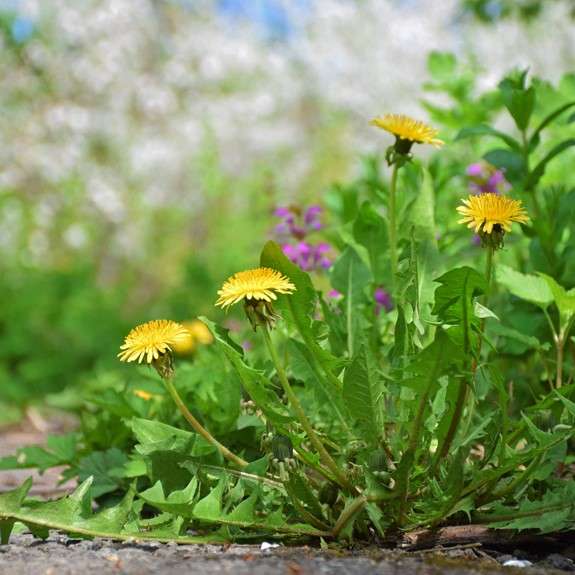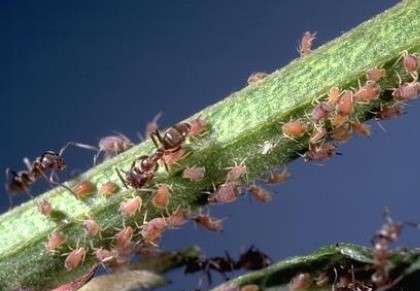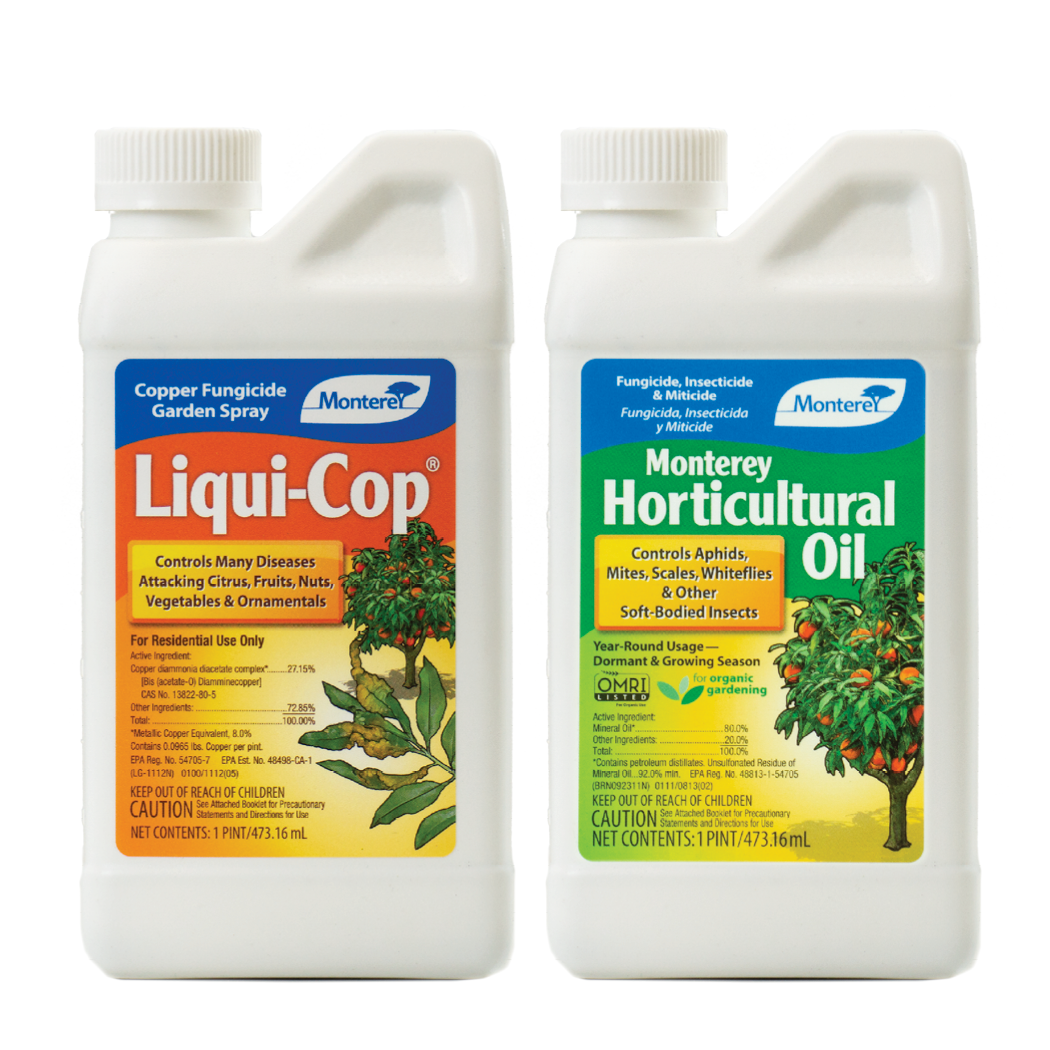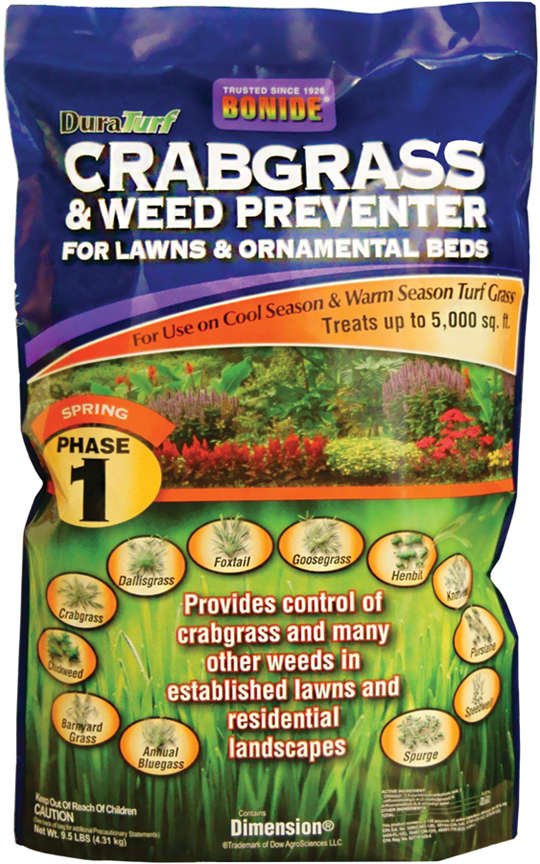
Garden Solutions For February

Dormant Sprays, Aphids, and Pre-Emergents
February is when we typically receive questions about dormant sprays, aphid sightings, and how to stop weeds in the first warm days of late winter.
We offer some time-tested and proven advice for these issues below, but if you need more information, our in-store gurus are ready to diagnose and help you find the right cure.
We offer some time-tested and proven advice for these issues below, but if you need more information, our in-store gurus are ready to diagnose and help you find the right cure.
Dormant Sprays
Using Monterey Liqui-Cop® and Horticultural Oil provides a powerhouse of prevention, and this is the month for the final spray for many plants. Most plants can only be sprayed until the blooms begin to push open, also known as the “popcorn stage”. However, there are some exceptions to this rule. For instance, apples and pears will receive additional spraying through the blooming period to control fire blight. So be sure to read and follow the directions carefully to spray the right amount, at the right time, to control diseases.
Aphids
As the weather warms up, aphids show up. The best control against aphids is to use organic fertilizers. Synthetic fertilizers push very fast green growth that sends out a blinking neon “Eat Here” sign to aphids. If you do find aphids, they can easily be sprayed off with a hose. The Monterey Horticultural Oil used as dormant spray is also an ideal organic control of aphids, and other soft-bodied insect pests, including white fly, some scale, and mites.
For fruit trees, roses and other plants, control aphids by controlling ants. Ants bring aphids into your plants and then “farm” the aphids to eat the sweet honey dew they create. Use sticky traps on the tree, ant bait stations, and keep mulch six inches from the plant base to reduce ant populations dramatically—which will keep aphid populations significantly lower.
For fruit trees, roses and other plants, control aphids by controlling ants. Ants bring aphids into your plants and then “farm” the aphids to eat the sweet honey dew they create. Use sticky traps on the tree, ant bait stations, and keep mulch six inches from the plant base to reduce ant populations dramatically—which will keep aphid populations significantly lower.

Pre-Emergents For Weeds
For weed prevention, now is the ideal time to add more mulch, keeping it at least three inches deep, but away from the base of the plant.
Also, be sure to check irrigation for leaks that may be keeping areas too wet, which encourages weeds.
Pre-emergents work well to stop weed seeds from sprouting, and will last up to three months. Do not use pre-emergents in areas where you plan on adding seed in the next three months because pre-emergents are not selective, and will stop most seeds from sprouting.
Also, be sure to check irrigation for leaks that may be keeping areas too wet, which encourages weeds.
Pre-emergents work well to stop weed seeds from sprouting, and will last up to three months. Do not use pre-emergents in areas where you plan on adding seed in the next three months because pre-emergents are not selective, and will stop most seeds from sprouting.


